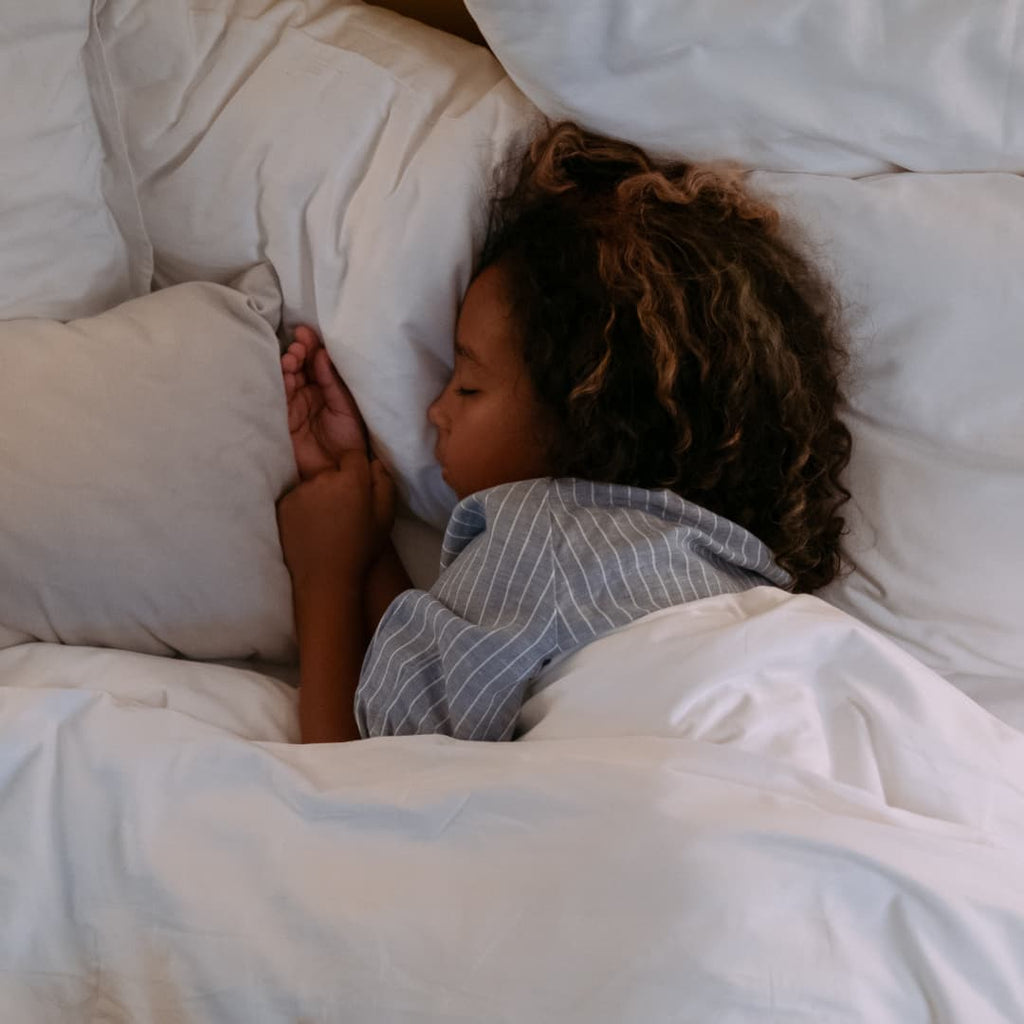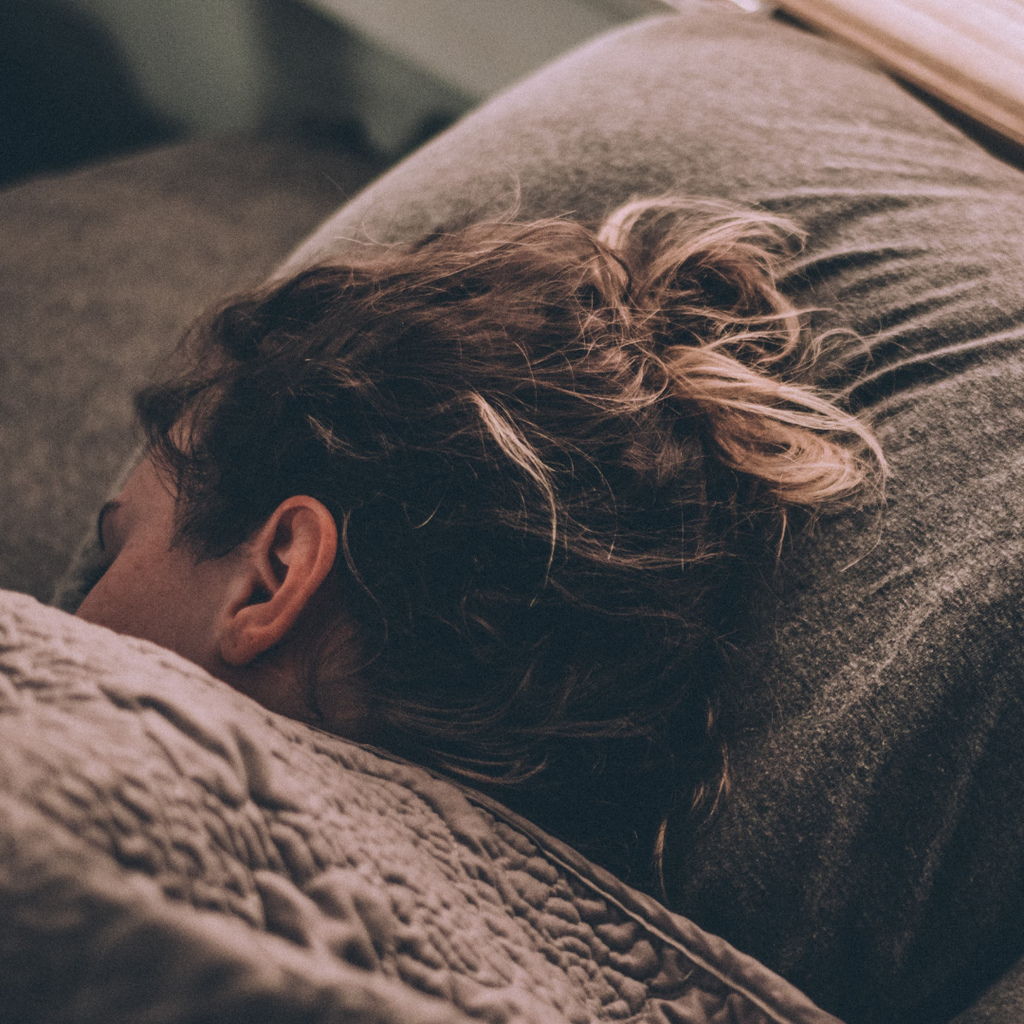Melatonin vs Safer alternatives to improve sleep
Written by Sleep Pod - Published on 2 May 2023

According to a study conducted by a sleep foundation, approximately one out of every three adults in the US takes melatonin on a daily basis. The growing popularity of melatonin supplements as a sleep aid, coupled with their easy availability without a prescription, has contributed significantly to this increase in usage.
When faced with difficulty falling asleep, many individuals are tempted to try melatonin supplements as a potential solution. However, it is important to question whether relying on melatonin for sleep is a healthy choice.
How melatonin helps people sleep
Melatonin plays a crucial role in regulating sleep. In response to the onset of darkness, the human brain releases this hormone a few hours before bedtime. Melatonin acts upon the brain's sleep-wake cycle control center, stimulating sleep-inducing signals and inhibiting wake-promoting signals.
The secretion of melatonin in humans follows a rhythmic pattern that aligns with the sleep-wake cycles. Its levels peak between 2-4 am and gradually decrease in the morning when exposed to light.
To ensure optimal melatonin secretion in the brain, it is recommended to minimize exposure to bright light a few hours before going to bed. This helps to prevent disruption in the natural production of melatonin, which is essential for a healthy sleep-wake cycle.
The health risks of melatonin supplements
Melatonin supplements can act as a sleep aid, but reliance on these medications to sleep has its downsides.
Disrupts the body’s circadian rhythm
The secretion of melatonin by the body plays a significant role in regulating the 24-hour body clock or circadian rhythm. However, taking melatonin supplements daily can have adverse effects if not used correctly or in excessive amounts.
Misuse of melatonin supplements can disrupt the body's sleep-wake signals, leading to daytime drowsiness instead of wakefulness.
Interaction with other medications
It's important to note that melatonin supplements can interact with certain medications, potentially causing unwanted side effects. Individuals taking medications like blood thinners or antiseizure drugs should exercise caution and seek medical supervision before using melatonin supplements.
Unwanted side effects
Since the sale of melatonin supplements is not regulated by health authorities, many people are exposed to doses that exceed the recommended levels. This increases the risk of experiencing side effects such as headaches, dizziness, nausea, and daytime drowsiness.
Accidental exposure to harmful substances
A study conducted in 2017 regarding melatonin supplements revealed that 71% of the analyzed supplements contained chemical contaminants and undisclosed components. This raises concerns about the overall quality of most melatonin supplements available in the market. Individuals who regularly consume melatonin supplements may unknowingly subject themselves to the potential health risks associated with these toxic chemicals.
Safety considerations for vulnerable populations
Certain groups, including the elderly, young children, and pregnant women, have unique physiological processes that make melatonin supplements potentially unsafe for them. For instance, the effects of ingested melatonin can last longer in older individuals, increasing their susceptibility to adverse reactions.
Exploring alternatives for better sleep
Besides relying on melatonin supplements, there are safer options in the form of natural supplements and interventions that can help improve sleep quality.
Exploring natural alternatives
Consider trying natural supplements that contain minerals like magnesium, as they have been shown to promote better sleep. Research has found that magnesium supplements can be effective in improving sleep for individuals with insomnia.
Aromatherapy
Aromatherapy is a complementary therapy that involves the use of essential oils or herbal extracts from natural plants. Inhaling or massaging these oils onto the skin is believed to have psychological and relaxing effects, making them a potential aid for sleep.
Maintaining a consistent sleep schedule
Establishing a regular sleep-wake routine helps regulate your body's internal clock, making it easier to fall asleep and wake up. Consistency in your sleep schedule can greatly contribute to better sleep quality.
The Sleep Pod
The Sleep Pod is designed to provide a soothing and calming sleeping experience. In a clinical study conducted, participants reported an 11% increase in perceived calmness during sleep after just one week of using the Pod. Additionally, the study found improvements in sleep quality, including a 44% faster onset of sleep and 23% fewer mid-night wake-ups.
Meditation
Meditation reduces anxiety and relaxes you so you can fall asleep easily. Deep breathing is one of the common techniques for sleep meditation. To practice deep breathing, lie quietly and focus on counting your breaths as you breathe in and out.
Jul 03, 2023
Jun 21, 2023
Jun 05, 2023
May 15, 2023




